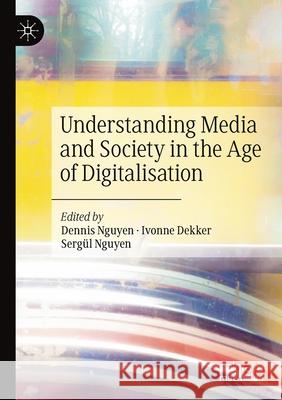Understanding Media and Society in the Age of Digitalisation » książka
topmenu
Understanding Media and Society in the Age of Digitalisation
ISBN-13: 9783030385798 / Angielski / Miękka / 2021 / 256 str.
Understanding Media and Society in the Age of Digitalisation
ISBN-13: 9783030385798 / Angielski / Miękka / 2021 / 256 str.
cena 402,53
(netto: 383,36 VAT: 5%)
Najniższa cena z 30 dni: 385,52
(netto: 383,36 VAT: 5%)
Najniższa cena z 30 dni: 385,52
Termin realizacji zamówienia:
ok. 22 dni roboczych.
ok. 22 dni roboczych.
Darmowa dostawa!
Kategorie:
Kategorie BISAC:
Wydawca:
Palgrave MacMillan
Język:
Angielski
ISBN-13:
9783030385798
Rok wydania:
2021
Wydanie:
2020
Ilość stron:
256
Waga:
0.33 kg
Wymiary:
21.01 x 14.81 x 1.47
Oprawa:
Miękka
Wolumenów:
01
Dodatkowe informacje:
Wydanie ilustrowane











